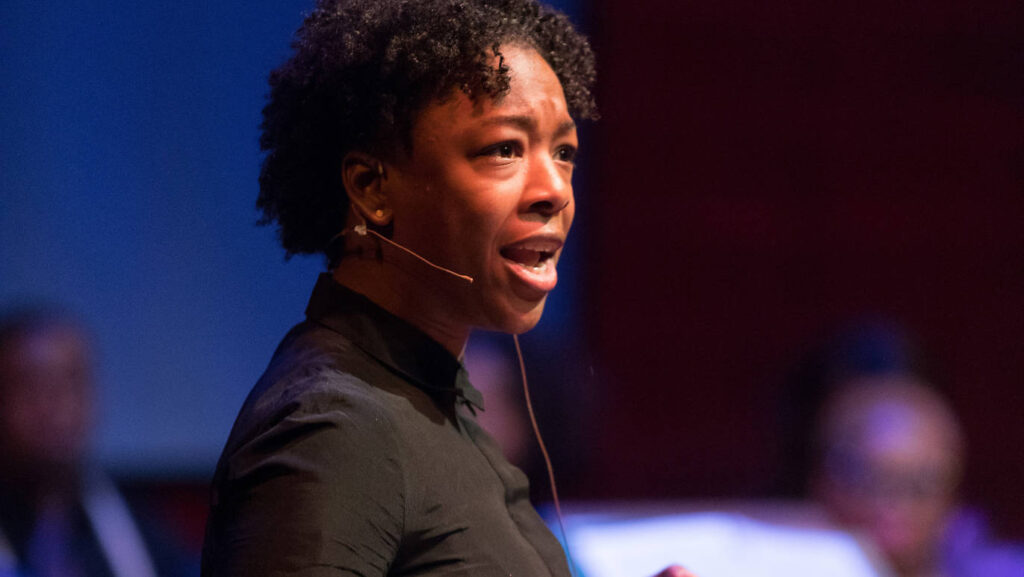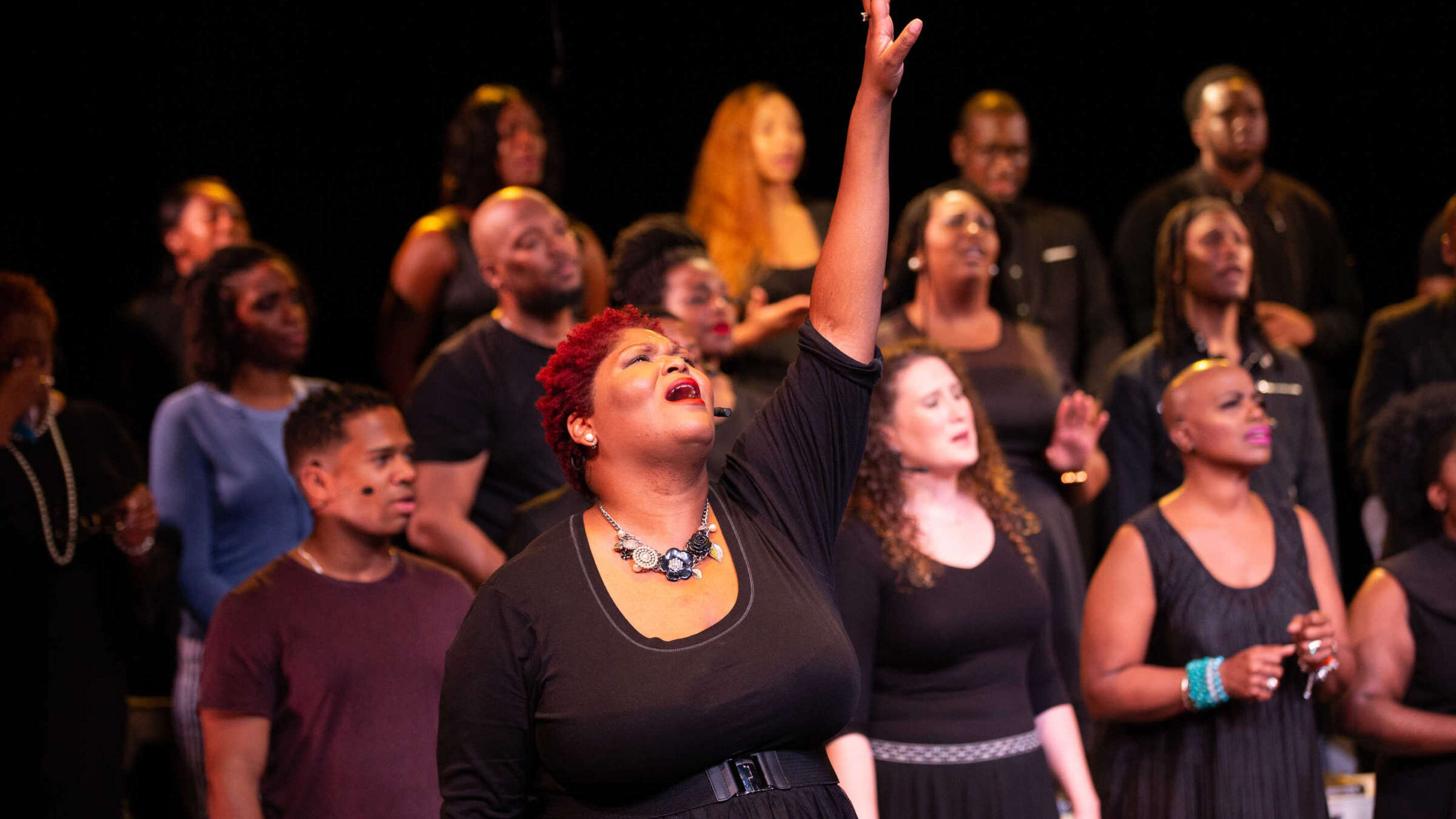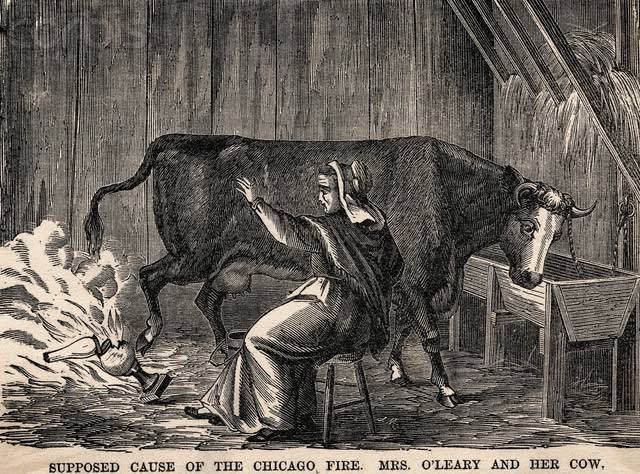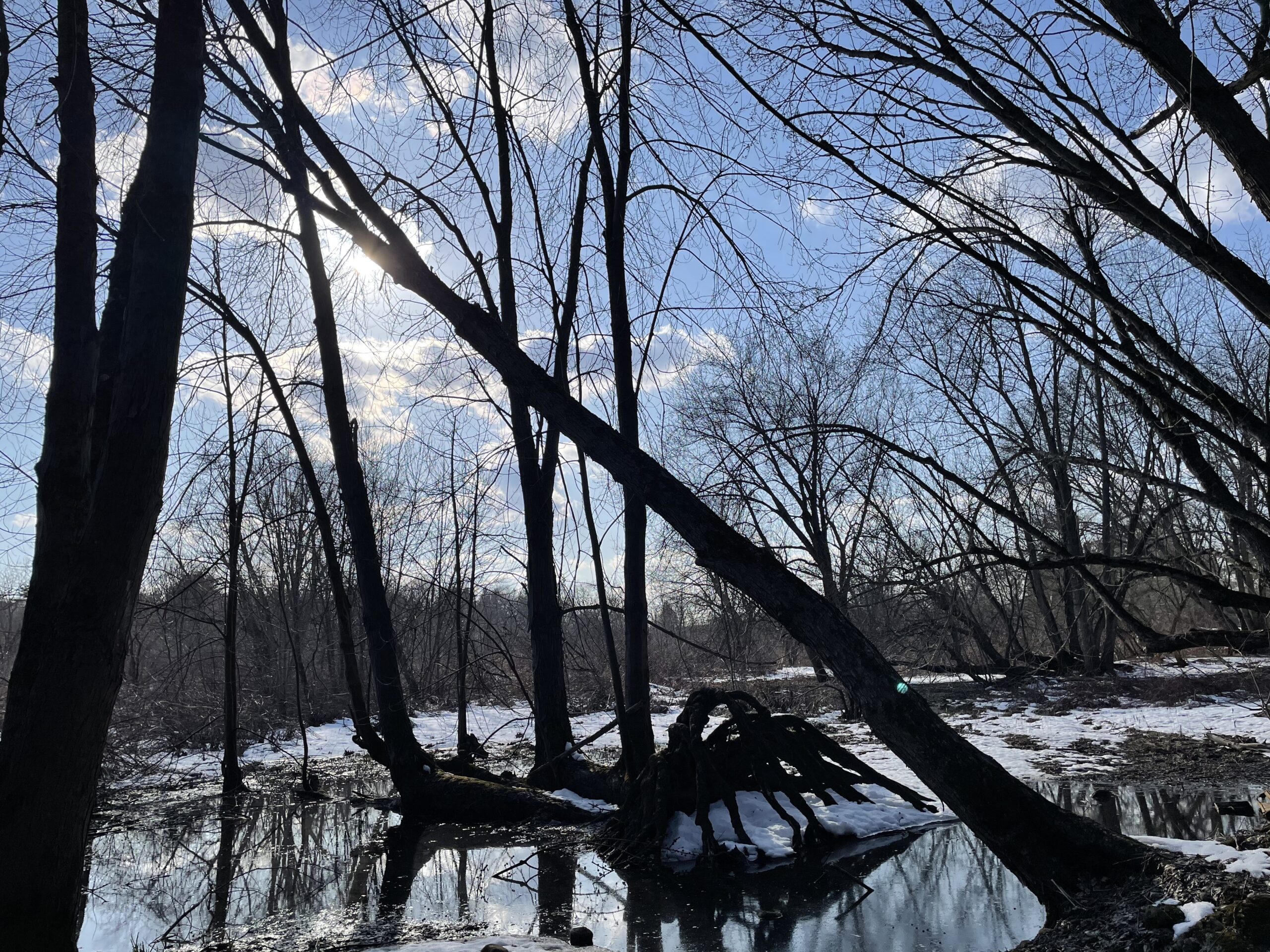How can we use theatre to bring comfort to the afflicted? Theater of War Productions, founded in 2009 by Bryan Doerries and Phyllis Kaufman, is committed to engaging the community through dramatic readings of seminal plays followed by town hall discussions. They seek to engage the audiences and actors to dissect how texts resonate with contemporary society.
Following the murder of Michael Brown, their production of Antigone in Ferguson presented the Greek tragedy set against the tension and political unrest of the area at the time. With the help of Theater of War Production members and Missouri residents such as police officers, teachers, choir directors, and friends, Antigone in Ferguson premiered at Michael Brown’s alma mater of Normandy High School in September of 2016 as a cathartic, musical experience.
The show has since traveled to Harlem Stages, where, partnered with the Stavros Niarchos Foundation, performances were free, and there was massive outreach to youth and underserved communities in Harlem and throughout the city. Then, the show traveled to the St. Ann and Holy Trinity Church in Brooklyn, where, partnered with the Brooklyn Public Library, performances were free to the public for a ten-week run. The town hall meetings were a major part of the experience in all performances.

The process proved very healing and cathartic for the performers as well as the audience members. Viewing the documentary was a very cathartic experience for me. When I first heard the title Antigone in Ferguson, I was expecting some radical, modern interpretation. However, the production simply presents the classical text as is and lets Sophocles’ ancient words speak to the audiences of today. I was surprised by how much the archaic laws of Ancient Greece spoke to modern injustices. Director Bryan Doerries used the focal point of a body left at his place of death while loved ones are unable to lay him to rest to connect the two plays. It was surprisingly effortless to draw contemporary parallels to so many of the ancient characters. Both are stories of resilience and love, this time dedicated to the citizens of Ferguson who were devastated by the disaster. Since a lot of ensemble members knew Brown personally, it really felt like, through the rousing music composed by Phil Woodmore, they were able to lift their voices in agony, in love, and in power and really be heard for the first time. “Every night that we sing ‘I’m Covered’ at the end of the play, it’s my way of covering my student Michael Brown,” said De-Rance Blaylock, who performed in the 2018 Harlem Stage production.
Now, we find ourselves in the middle of another time of social unrest. We’ve been continuously shown images of black bodies in trauma and statistics showing the real depth of our oppression by white supremacy. We’re in dire need of a feeling of camaraderie and comfort, but the pandemic makes it practically impossible for us to come together in healing. Luckily, Theater of War Productions has given us a few opportunities to experience that comfort in our homes. In the wake of COVID-19, the Antigone in Ferguson cast virtually reunited under the direction of Phil Woodmore to perform the rousing “I’m Covered’ led by De-Rance Blaylock, shown below:
Also, as part of their House Seats series, PBS filmed a documentary about the creation of Antigone in Ferguson with numerous clips from their performance and the town hall meetings from the 2018 run at Harlem Stage. You can watch that video below:
Author
-

Dezi Tibbs (she/him) is a dramaturg, writer, and performer based in New York City and Philadelphia, PA. She aims to afflict the comfortable and comfort the afflicted. His work likes to utilize stereotypes, magic, and television tropes in order to reveal humanity’s secrets. She finds herself drawn to pieces that center blackness, queerness, or spirituality. As a dramaturg, his work is very research driven but grounded in tangible concepts. www.dezitibbs.com










